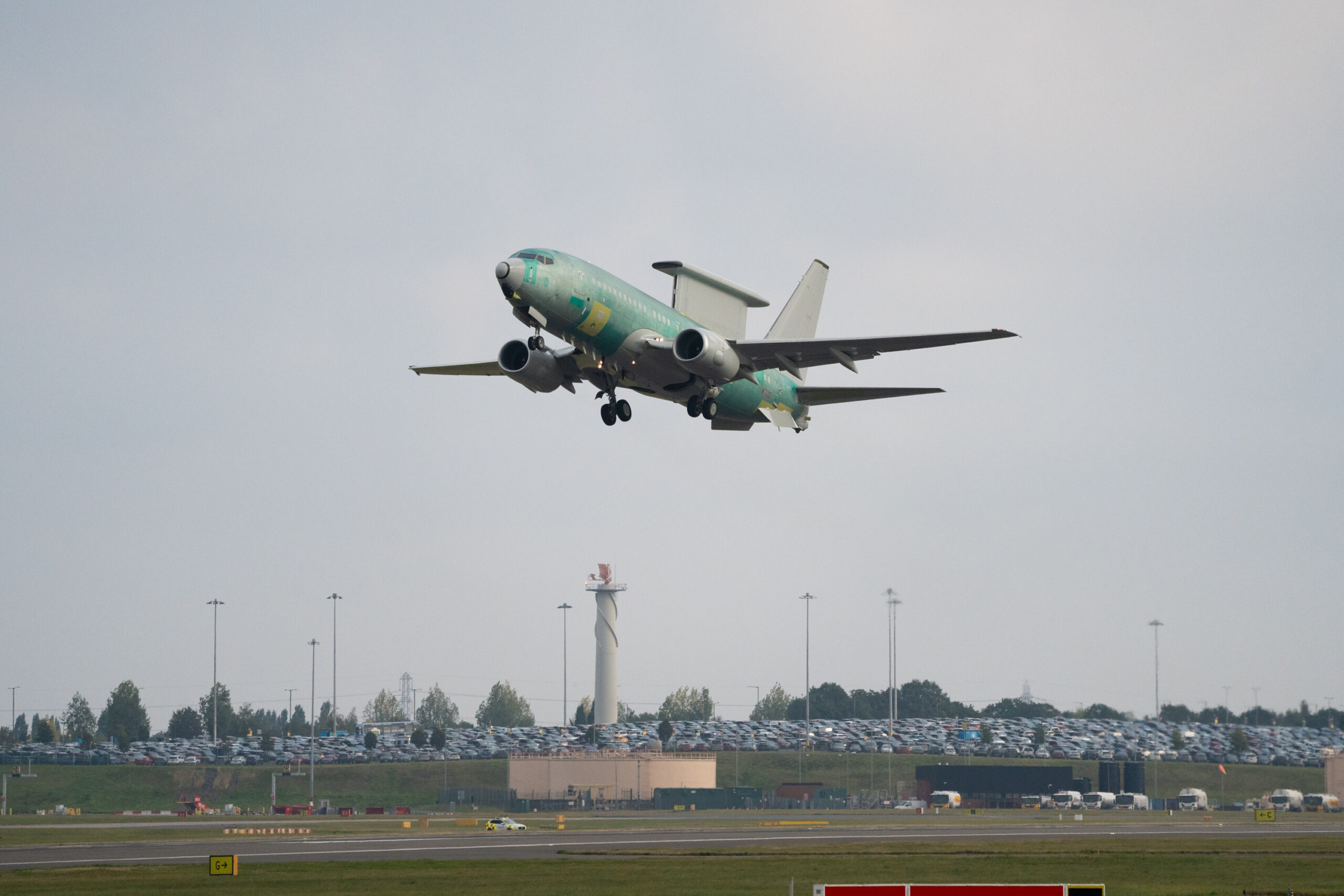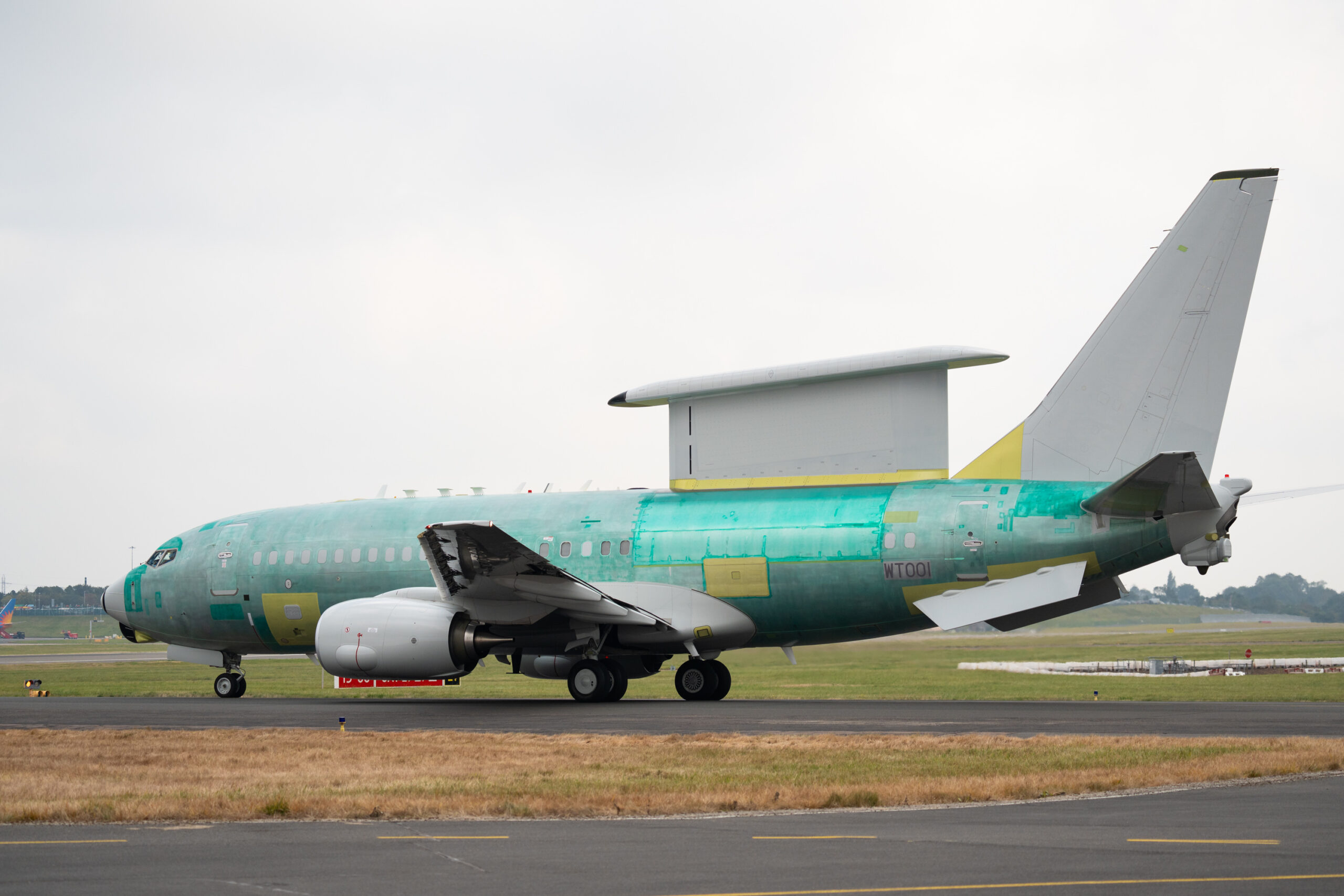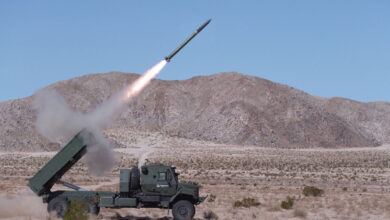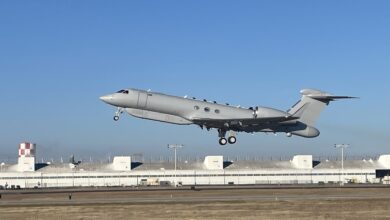Boeing has completed the initial flight of the UK Royal Air Force’s future E-7 Wedgetail early warning and control aircraft at Birmingham Airport in England.
The event saw the company’s flight test team conduct functional checks of the system before its launch.
The plane will undergo additional live assessments as part of the program’s primary evaluation phase this autumn.
Boeing will also send the aircraft to another center that will finalize the hull’s livery outfitting.
“This safe and systematic Functional Check Flight is an important step for Boeing and the RAF as part of our rigorous and extensive testing and evaluation,” Boeing VP and E-7 Program Manager Stu Voboril remarked.
“Our team is committed to ensuring the E-7 delivers the safety, quality, and capabilities we’ve promised to our customer as we prepare for delivery of the UK’s first E-7 Wedgetail to the RAF.”

‘Significant Milestone’
Boeing accepted the contract to build five E-7s in 2019 to replace the British government’s decommissioned E-3 Sentry fleet, which operated for the same purpose since the 1990s.
The $1.98-billion planes are set to achieve operational capability by 2025.
“This first flight marks a significant milestone for the programme and for our team who have worked tirelessly with our partners to progress what is a hugely complex endeavour,” UK Defence Equipment & Support Director Richard Murray commented on the latest trial.
“We are moving forward and will be delivering this critical capability to the RAF.”
Local E-7 Development Centers Now Ready
The UK’s Wedgetail initiative involved the construction of hangars in Lossiemouth, Scotland, last year to support the Wedgetail’s in-country engineering works.
The site will house works for the three upcoming E-7s as well as other military aircraft once the program concludes.
London announced the inauguration of the $103-million center in September 2024. It will be managed by over 175 on-site personnel at the project’s peak, according to the government.
“We’re proud of the robust E-7 modification line we’ve stood up in the UK to deliver the RAF’s future Airborne Early Warning & Control fleet,” Boeing UK, Ireland and the Nordics President Maria Laine commented.
“We are committed to delivering this crucial capability to support the UK’s national security and contribute toward regional stability.”
Boeing’s E-7 Wedgetail
The E-7 Wedgetail has a 34-meter (112-foot) fuselage and a 36-meter (118-foot) wingspan.
It is flown by two pilots, with functions run by up to 10 mission personnel. In 2022, the UK’s first E-7 platform received its main sensor suite.
The Wedgetail is powered by turbofans for a range of 6,500 kilometers (4,039 miles), a speed of 853 kilometers (530 miles) per hour, and a service ceiling of 12,500 meters (41,011 feet).












